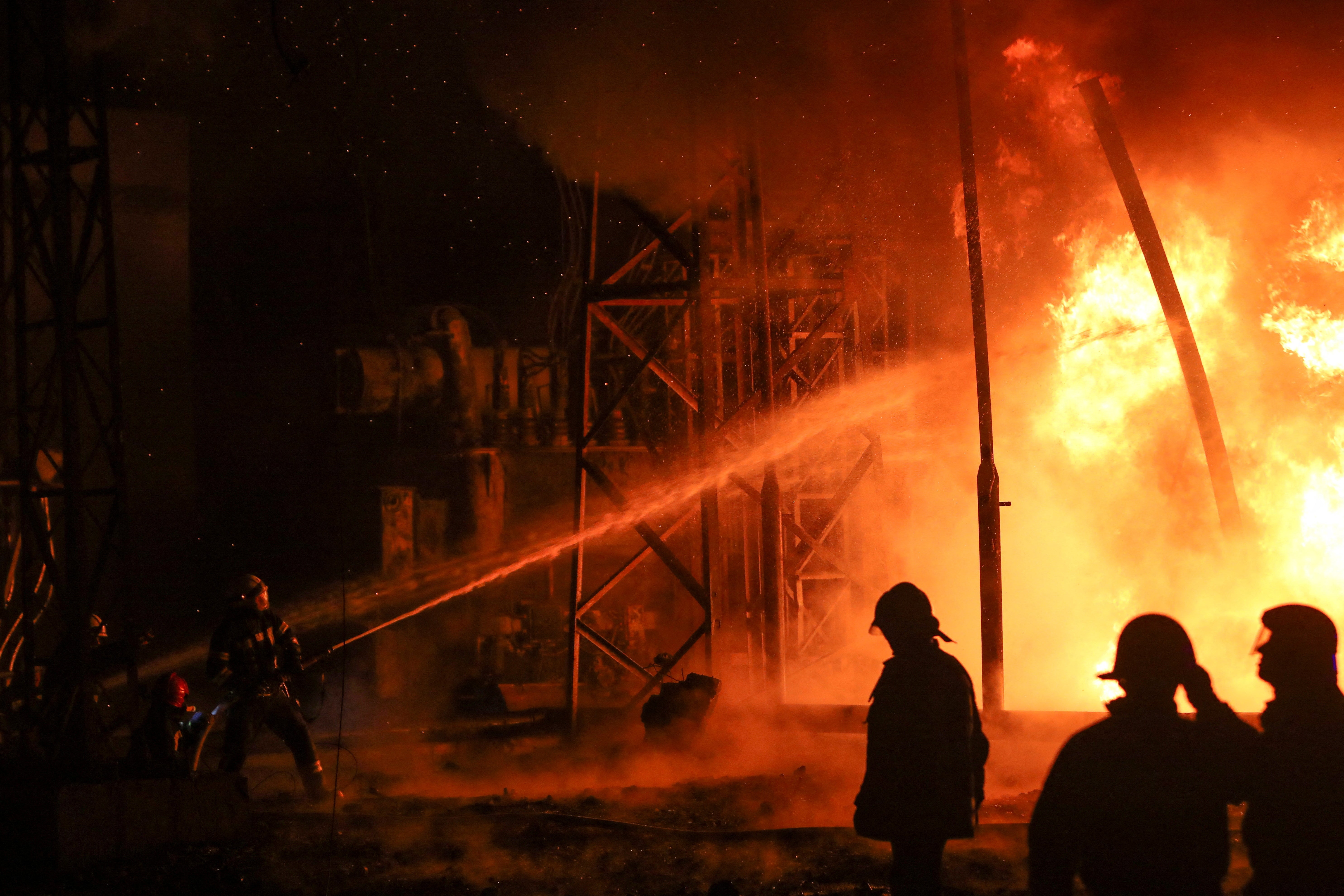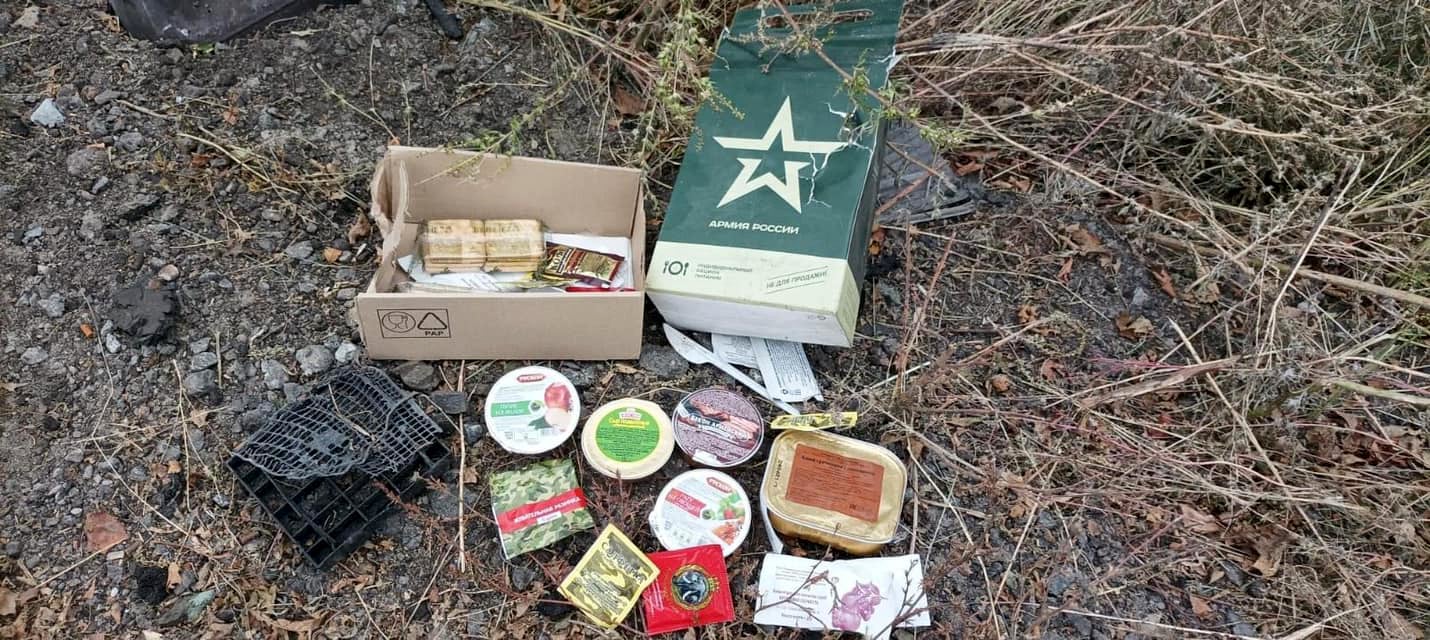Ukraine war: Thousands without power or water as faltering Russians take revenge on infrastructure
Intelligence officials fear Russian attacks on civilian infrastructure are the grim shape of things to come this winter

Thousands of households in Ukraine are cut off from power and water following Russian attacks on infrastructure facilities, as the war in Ukraine reaches a new stage of attrition targeting civilians.
The strikes came in retribution for Moscow’s losses of key military strongholds and supply lines on one of the main front lines in the conflict, after a surprise offensive resulted in one of the most significant gains made by Ukraine since the war began.
The military reverses have led to vehement criticism in Russia, even from staunch supporters of Vladimir Putin’s invasion, and there have been calls for an investigation into why the mission is faltering so badly.
The critics have been joined by the powerful voice of Ramzan Kadyrov, Russia’s client leader in Chechnya, who has declared that the “real situation” on the ground is “astounding” and has accused the leadership of making major mistakes.
Thousands of Chechens have fought in Ukraine on behalf of Moscow since the conflict began, and a considerable number have been killed and injured. Mr Kadyrov, who has been a vocal backer of the war, has made morale-boosting visits to his troops, promising them victory in return for their sacrifices.
The Chechen leader appeared to suggest that he will raise his concerns directly with President Putin.
“They have made mistakes, and I think they will draw the necessary conclusion. If today or tomorrow no changes in strategy are made, I’ll be forced to speak with the leadership of the defence ministry and the leadership of the country to explain the real situation on the ground to them. It’s a very interesting situation. It’s astounding, I would say,” he stated in a voice message on his Telegram channel.
Ukrainian intelligence officials said that Moscow had carried out another change in command following the newest losses, with the officer in charge of the Western Army Group being recalled after just 17 days at his post. The sacking of General Roman Berdnikov follows a now familiar pattern of commanders departing after military debacles.
Whatever other military measures the Kremlin decides to take, Ukrainian and Western officials hold that the strikes on infrastructure are the grim shape of things to come in a winter in which Ukraine already faces an acute power crisis.
Volodymyr Zelensky blamed “Russian terrorists” for the strikes on power plants. “No military facilities were attacked. The goal is to deprive people of light and heat,” he said on social media. But, he said, Ukrainians have become used to Russian “treachery”, adding that “cold, hunger, darkness and thirst are not as terrible and deadly for us as [Russia’s] ‘friendship and brotherhood’”.

Ukraine’s president vowed that his nation would defy Russia’s attempts at intimidation. In what has been seen as a direct message to Mr Putin, he stated: “Do you still think that we are ‘one people’? Do you still think that you can scare us, break us, force us [to] make concessions? You really did not understand anything?”
Ihor Terekhov, the mayor of Kharkiv, described the attack on the power facilities as a “vile and cynical attempt at revenge” following Ukrainian success. The governor of Sumy, Dmytro Zhyvytsky, said in a message to residents: “Electric tension has fallen in the network through the region. I recommend disconnecting electrical devices as much as possible.”
President Zelensky said Ukrainian forces had retaken 3,000 sq km of territory by Sunday, rising from 2,000 sq km on Saturday and 1,000 sq km on Thursday. British officials say that an area equivalent to Greater London has been retaken in that time.
On Saturday, the town of Kupiansk was captured by Ukrainian forces, providing them with the opportunity to cut off one of the main Russian logistical and communications lines on the Kharkiv front. On the same day, the Russians withdrew troops from the city of Izium, which sits on the main route to the Donbas, and which Mr Putin had promised to “reunify” with Russia. Moscow’s forces have captured a sizeable portion of the region, but the main cities of Slovyansk and Kramatorsk remain in Ukrainian hands despite previous expectations of their fall.
Two-thirds of the population of Izium has fled since the fighting began, but its citizens should be able to return in around 10 days’ time, said the city’s mayor, Valerii Marchenko. Ukrainian military officials stressed that the timeframe would depend on how long it takes to clear mines and booby traps.
Join our commenting forum
Join thought-provoking conversations, follow other Independent readers and see their replies
Comments

Bookmark popover
Removed from bookmarks